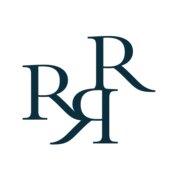Best Toxic Mold Lawyers in Innsbruck
Share your needs with us, get contacted by law firms.
Free. Takes 2 min.
List of the best lawyers in Innsbruck, Austria
About Toxic Mold Law in Innsbruck, Austria
Toxic mold, scientifically known as Stachybotrys chartarum, is a greenish-black mold that can grow on material with a high cellulose and low nitrogen content, such as fiberboard, gypsum board, and paper. In Innsbruck, Austria, the issue of toxic mold has gained increasing attention due to its potential health risks including respiratory problems, allergic reactions, and even neurological issues. Legal actions have become more common as tenants and property owners seek to address the repercussions of mold infestations. Understanding the local laws and regulations governing toxic mold can help residents protect their health and property.
Why You May Need a Lawyer
There are several situations in which legal assistance may be necessary:
- Disputes between landlords and tenants over mold remediation responsibilities.
- Health complications caused by prolonged exposure to toxic mold, leading to personal injury claims.
- Insurance claims related to mold damage that are denied or inadequately processed.
- Disagreements over property sales where toxic mold is discovered during inspections.
- Compliance issues with local regulations pertaining to mold inspection, maintenance, and disclosure.
A lawyer specializing in toxic mold can offer guidance, represent you in legal disputes, and help secure compensation for damages or health-related issues.
Local Laws Overview
Innsbruck adheres to several key regulations concerning toxic mold:
- Property Maintenance Regulations: Landlords are generally required to ensure their properties are free from health hazards, including mold. Failure to do so can result in legal penalties and compensation claims.
- Tenant Rights: Tenants have the right to a habitable living environment. They can demand remediation of mold issues and, if necessary, withhold rent or terminate the lease without penalty if the landlord fails to address the problem.
- Building Codes: New constructions and major renovations must adhere to mold prevention measures, such as proper ventilation and moisture control.
- Disclosure Requirements: Sellers are obliged to inform potential buyers about existing mold issues in the property. Failure to disclose can result in legal action for damages.
Frequently Asked Questions
What is toxic mold?
Toxic mold refers to certain types of mold that produce mycotoxins, which can be harmful to human health.
How can I know if I have toxic mold in my property?
Mold can be identified visually or through its musty smell. However, laboratory testing is required to confirm the presence of toxic mold species.
What health issues are associated with toxic mold exposure?
Symptoms can range from sneezing, coughing, and skin rashes to more serious conditions like asthma, chronic fatigue, and neurological issues.
Who is responsible for removing toxic mold in a rental property?
Generally, landlords are responsible for maintaining a habitable living environment, which includes mold removal.
What can I do if my landlord refuses to address a mold problem?
Document the issue with photographs and written communication. You may need to seek legal advice or contact local health authorities.
Can I sue my landlord for health issues caused by toxic mold?
Yes, if you can prove that the landlord's negligence led to the mold exposure and consequent health problems.
Are there any government programs for mold remediation?
Local health departments can provide advice and sometimes financial assistance for mold remediation, especially if health risks are involved.
Is mold testing mandatory in Innsbruck?
No, mold testing is not mandatory, but it is highly recommended if mold is suspected.
How long does it take to resolve a mold-related legal dispute?
The duration varies, but most cases can take several months to over a year depending on complexity.
Can I get reimbursed for the costs of mold testing and remediation?
Yes, if it is proven that the landlord or seller was responsible for the mold issue, you may be entitled to reimbursement.
Additional Resources
For more information and assistance, consider reaching out to the following resources:
- Innsbruck's local health department
- Legal aid organizations specializing in tenant rights
- Consumer protection agencies
- Professional mold remediation services
- Environmental health organizations
Next Steps
If you suspect a toxic mold issue and think you need legal assistance:
- Document the mold issue with photographs and detailed notes.
- Contact a professional for mold testing to confirm its presence and identify the species.
- Consult with a lawyer specializing in toxic mold cases to discuss your rights and options.
- Follow your lawyer's advice regarding next steps, whether it involves contacting the landlord, filing an insurance claim, or taking legal action.
Taking these steps can help you protect your health and property, as well as ensure fair compensation for any damages or health issues caused by toxic mold.
Lawzana helps you find the best lawyers and law firms in Innsbruck through a curated and pre-screened list of qualified legal professionals. Our platform offers rankings and detailed profiles of attorneys and law firms, allowing you to compare based on practice areas, including Toxic Mold, experience, and client feedback.
Each profile includes a description of the firm's areas of practice, client reviews, team members and partners, year of establishment, spoken languages, office locations, contact information, social media presence, and any published articles or resources. Most firms on our platform speak English and are experienced in both local and international legal matters.
Get a quote from top-rated law firms in Innsbruck, Austria — quickly, securely, and without unnecessary hassle.
Disclaimer:
The information provided on this page is for general informational purposes only and does not constitute legal advice. While we strive to ensure the accuracy and relevance of the content, legal information may change over time, and interpretations of the law can vary. You should always consult with a qualified legal professional for advice specific to your situation.
We disclaim all liability for actions taken or not taken based on the content of this page. If you believe any information is incorrect or outdated, please contact us, and we will review and update it where appropriate.











